What Maisie Knew (Henry James Collection)


Author: Henry James
Category: Literature
Published: 2018
Series:
View: 294
Read OnlineWhat Maisie Knew is a novel by Henry James, first published as a serial in the Chap-Book and (revised and abridged) in the New Review in 1897 and then as a book later that year. It tells the story of the sensitive daughter of divorced, irresponsible parents. The book is also a masterly technical achievement by James, as it follows the title character from earliest childhood to precocious maturity.
What Maisie Knew has attained a fairly strong critical position in the Jamesian canon. Edmund Wilson was one of many critics who admired both the book's technical proficiency and its judgment of a negligent and damaged society. When Wilson recommended What Maisie Knew to Vladimir Nabokov, the author of Lolita, Nabokov said he thought the book was terrible. F.R. Leavis, on the other hand, declared the book to be "perfection." The psychoanalytic critic Neil Hertz has argued for a parallel between James' narrative voice and the problem of transference in Freud's Dora case.
Henry James, OM (15 April 1843 – 28 February 1916) was an American writer who spent most of his writing career in Britain. He is regarded as one of the key figures of 19th-century literary realism. He was the son of Henry James, Sr. and the brother of philosopher and psychologist William James and diarist Alice James.
He is best known for a number of novels showing Americans encountering Europe and Europeans. His method of writing from a character's point of view allowed him to explore issues related to consciousness and perception, and his style in later works has been compared to impressionist painting. His imaginative use of point of view, interior monologue and unreliable narrators brought a new depth to narrative fiction.
James contributed significantly to literary criticism, particularly in his insistence that writers be allowed the greatest possible freedom in presenting their view of the world. James claimed that a text must first and foremost be realistic and contain a representation of life that is recognizable to its readers. Good novels, to James, show life in action and are, most importantly, interesting.
In addition to his voluminous works of fiction he published articles and books of travel, biography, autobiography, and criticism, and wrote plays. James alternated between America and Europe for the first twenty years of his life; eventually he settled in England, becoming a British subject in 1915, one year before his death. James was nominated for the Nobel Prize in Literature in 1911, 1912, and 1916.
What Maisie Knew has attained a fairly strong critical position in the Jamesian canon. Edmund Wilson was one of many critics who admired both the book's technical proficiency and its judgment of a negligent and damaged society. When Wilson recommended What Maisie Knew to Vladimir Nabokov, the author of Lolita, Nabokov said he thought the book was terrible. F.R. Leavis, on the other hand, declared the book to be "perfection." The psychoanalytic critic Neil Hertz has argued for a parallel between James' narrative voice and the problem of transference in Freud's Dora case.
Henry James, OM (15 April 1843 – 28 February 1916) was an American writer who spent most of his writing career in Britain. He is regarded as one of the key figures of 19th-century literary realism. He was the son of Henry James, Sr. and the brother of philosopher and psychologist William James and diarist Alice James.
He is best known for a number of novels showing Americans encountering Europe and Europeans. His method of writing from a character's point of view allowed him to explore issues related to consciousness and perception, and his style in later works has been compared to impressionist painting. His imaginative use of point of view, interior monologue and unreliable narrators brought a new depth to narrative fiction.
James contributed significantly to literary criticism, particularly in his insistence that writers be allowed the greatest possible freedom in presenting their view of the world. James claimed that a text must first and foremost be realistic and contain a representation of life that is recognizable to its readers. Good novels, to James, show life in action and are, most importantly, interesting.
In addition to his voluminous works of fiction he published articles and books of travel, biography, autobiography, and criticism, and wrote plays. James alternated between America and Europe for the first twenty years of his life; eventually he settled in England, becoming a British subject in 1915, one year before his death. James was nominated for the Nobel Prize in Literature in 1911, 1912, and 1916.
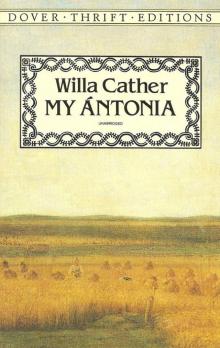 My Antonia
My Antonia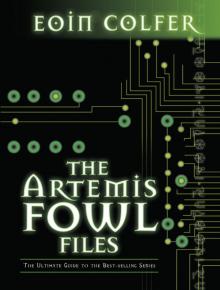 The Artemis Fowl Files
The Artemis Fowl Files Making It Up
Making It Up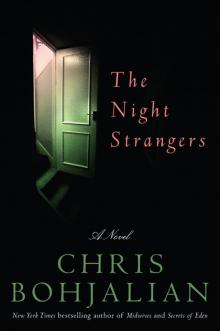 The Night Strangers
The Night Strangers First Love
First Love The Blade Artist
The Blade Artist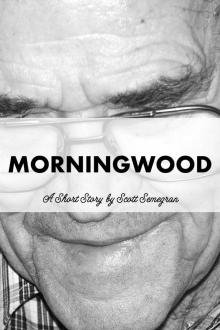 Morningwood
Morningwood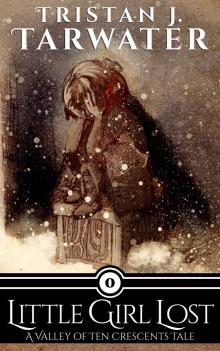 Little Girl Lost
Little Girl Lost